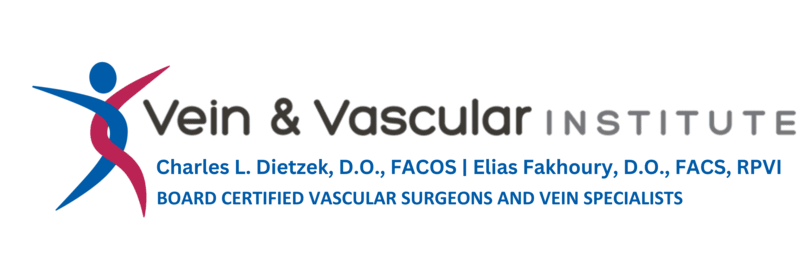When researching information about varicose veins, be careful not to fall prey to the abundance of misinformation you will find on various sites all over the web. Old wives’ tales abound regarding what causes and how to best treat varicose veins. The following information will set the record straight when it comes to your varicose veins and let you know when it’s time to seek help from a professional like Dr. Charles Dietzek at the Vein and Vascular Institute of New Jersey:
Table of Contents
ToggleCommon Myths About Varicose Veins:
Myth: They Are Caused by Crossing Your Legs:
If your grandma or aunt constantly tells you to refrain from crossing your legs to keep varicose veins away, you might be surprised to learn that crossing your legs doesn’t have an effect on your developing varicose veins.
Truth:
According to an article on nextavenue.org, the truth is varicose veins develop when your veins become damaged or weak and then cause the blood to back up and pool in your veins. This often results in swelling. The causes behind developing this condition are many and can include heredity. Varicose veins serve an important purpose to keep your blood moving throughout your body toward your heart. In most instances, varicose veins appear on the legs, but can appear in other regions of the body.
Myth: Varicose Veins Are Only a Cosmetic Issue:
Admittedly, varicose veins are unsightly, and they are often a cosmetic issue. They are big, blue, bulky and pretty noticeable. However, even though it might “seem” like a cosmetic issue only, it’s more than that.
Truth:
Dr. Elliot M. Antman, a professor and cardiologist at Brigham and Women’s Hospital at Harvard Medical School and a previous president of the American Heart Association says, “Patients who have other risk factors, like high blood pressure, congestive heart failure and water retention, along with those who have cardiovascular disease, can be at a higher risk for infections in the skin and other complications associated with varicose veins.” In severe cases, varicose veins can become detrimental to your health by causing clots that can be life-threatening. Varicose veins are painful even if you don’t fall in the high-risk category. As a result, they can reduce your quality of life. Therefore, they are more than cosmetic issue.
Myth: Varicose Treatment Won’t be Covered by Insurance:
You might assume since a cosmetologist will perform the treatment on your varicose veins, that your insurance won’t cover it. This is especially true if you aren’t experiencing any pain. You might feel they will classify it as unnecessary.
Truth:
Because varicose veins can be painful and lead to additional health issues, as was discussed above, many insurance companies will cover procedures to treat varicose veins.
When it’s Time to Seek Treatment From a Cosmetologist:
Don’t wait to get treatment for your varicose veins. Even if you aren’t presently having pain associated with your varicose veins, this doesn’t mean you can’t be proactive and get treatment. Doing so can prevent the problem from getting too severe and painful. Contact us today for a consultation.
